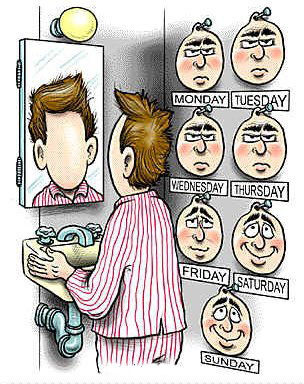Contact Us
Fill in the form below or you can also visit our contact us page.
People who have responsibility for and control over the work feel a greater commitment to ensuring that they work efficiently. Staff should be given the freedom to mal decisions and to tackle problems without constantly having to get agreement from their manager. Some managers feel that this lessens their control over staff and their work. In fact, because people are more committed to their work, their is less need for control.

Involving members of staff in solving a problem has sever benefits:
Make sure that everyone knows about and has easy access to information about the company's business objectives, its markets and its current problems.
This not only provides a stimulating challenge for staff to use problem solving to improve their efficiency, but it also creates an environment where individuals feel that only the best is acceptable, so they begin to set their own high standards. In setting standards it's vital that individuals know exactly what minimum standard they are expected to achieve in particular tasks.
We all know from experience that criticism of our ideas can be dispiriting, particularly if the ideas are new or unusual and the critical person is in a position of authority.
We often tend to look for flaws in other people's ideas rather than the good points. This may be because it proposes unsettling change, but more often it's for personal or political reasons, such as jealousy or anger about ideas from juniors or those. we are competing with, perhaps from another department.

Undue criticisism of ideas has two effects. People soon learn not to waste their time suggesting ideas when they know they will get a rebuff and, more insidiously, they become over-cautious in their thinking, concentrating on the flaws in an idea before it is even developed.
You should listen carefully to people so ideas and not reject them without careful consideration. Even if they appear impractical at first, perhaps theyi could be adapted and improved. When ideas do turn out to be completely impractical, explain to the person concerned why it would not work.
If there are standard rules and procedures in the organisation which hinder problem solving don't enforce them unless absolutely necessary. .
Encourage risk-taking in situations where the consequences of failure can be tolerated
To find original, innovative solutions to problems people need the freedom to experiment and this is inherently risky. Remember, ideas are not actions so even the most outlandish ideas can be tolerated without harm. Risk-taking can be actively encouraged, by suggesting to people that they look for unusual solutions to a situation, or passively, by ensuring that you do not harshly criticise ideas which are obviously impractical.
This is achieved by using a variety of tactics, eg
We all need reward for our efforts and it's important that people know there will be greater reward for innovative solutions to problems than for regular solutions. As well as recognition and appreciation another type of reward is for people to see their ideas implemented.
While some people find being under pressure of work or a deadline a stimulus to problem solving, others find it a hindrance and need to feel relaxed. People should be given the opportunity to spend time free from the pressures of other work to tackle important problems.
Read the next article: Physical environment effect on problem solving